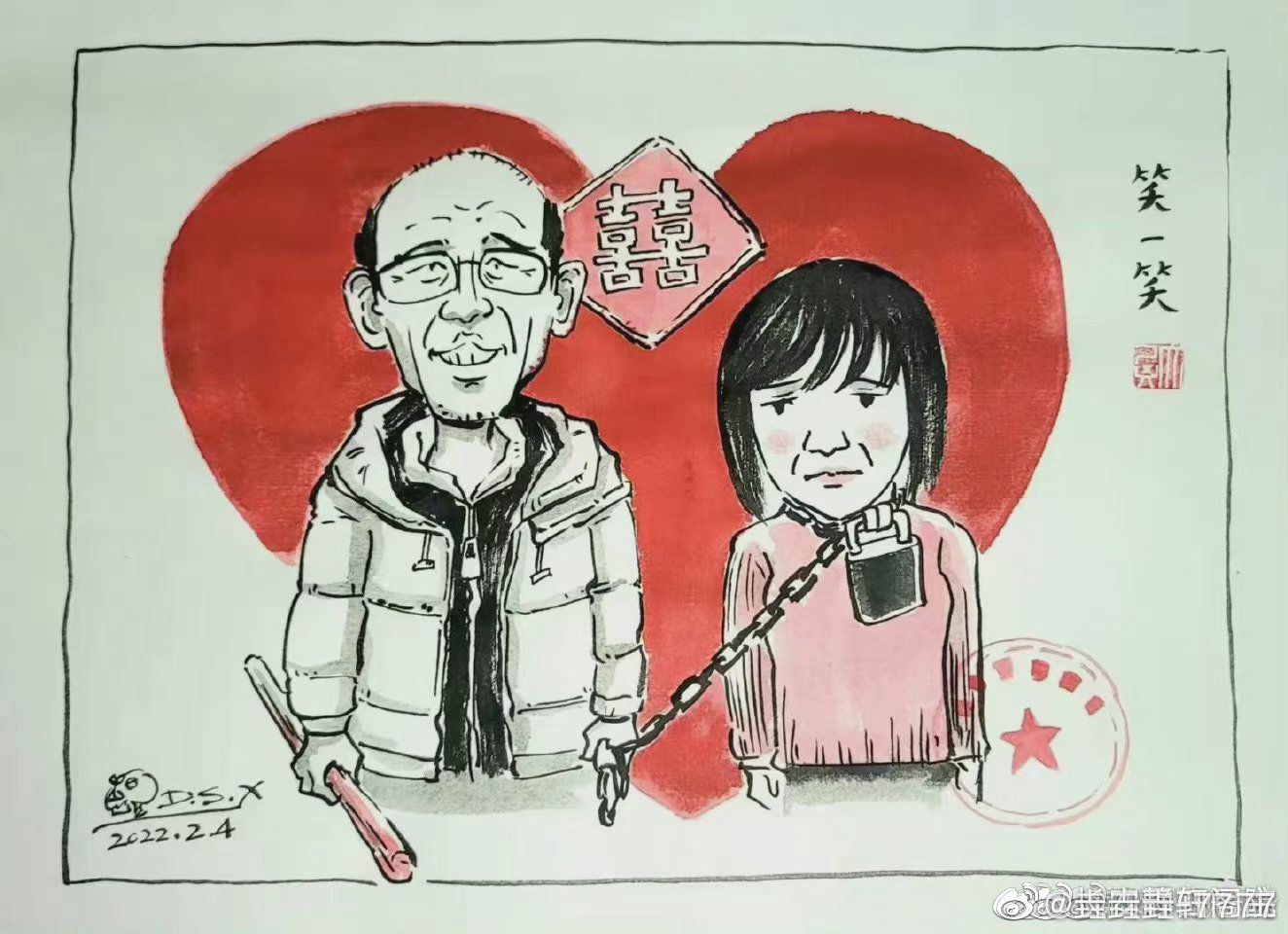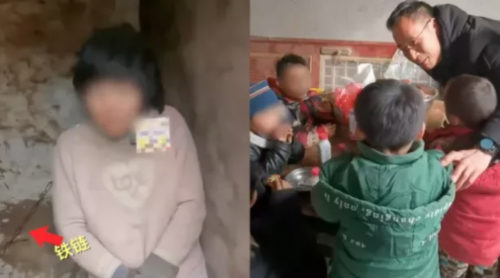More questions than answers two weeks after uproar over chained mother in Xuzhou
In the absence of a full reckoning by government officials about the mother of eight found chained inside a shack in rural Jiangsu Province, calls for a transparent investigation continue on Chinese social media despite heavy censorship.

It’s been more than two weeks since grim footage of a Chinese mother of eight shackled by her neck and locked up in a freezing shed caused widespread outrage on social media. Under public pressure, authorities in the city of Xuzhou, Jiangsu Province, where the woman was found, have so far put out four statements about their investigation into the case.
However, contradictory information provided by the local government, coupled with strengthened censorship of relevant discussions on the Chinese internet, has made many people increasingly skeptical about the truth behind the woman’s predicament.
In the original two-minute video that has made international headlines, the woman, surnamed Yang, can be seen wearing a thin sweater in the middle of winter and a metal brace around her neck. Standing in a doorless brick shack, the woman has a dazed expression on her face throughout the entire clip. At one point in the video, the man filming the footage brings her a jacket, but she is unable to put her gratitude into words. One of her eight kids, who lives in a warm house next to the shack, tells the man that food is brought to her every day, without showing any sign of empathy or compassion.
A social media star father, but where’s the mother?
Yang’s family had come to the attention of Chinese internet users last year through a series of videos depicting her husband, surnamed Dong, as a hard-working and caring father. Because it’s traditionally considered good luck in Chinese culture to have many sons, many content creators on Douyin, the Chinese version of TikTok, sought Dong out for interviews, asking him for parenting advice, and bringing gifts to the children. Dong later also created his own account on Douyin, where he regularly shared sweet moments with his children and solicited donations.
But missing in those videos was the mother. And when her deplorable living conditions were finally revealed in the video uploaded last month, social media users immediately vented their anger, with many wondering if she was a victim of human trafficking or domestic abuse.
China news, weekly.
Sign up for The China Project’s weekly newsletter, our free roundup of the most important China stories.
As indignation built, officials at Feng County, where the Xuzhou is located, quickly addressed the issue, explaining that Yang had to live separately from her husband and children due to her frequent episodes of violent outbursts. A statement (in Chinese) released on January 28 said that Yang had been married to Dong since 1998, and insisted that “there had been no abduction and trafficking.”
But the response did little to quell the uproar on social media, where many continued to blast the authorities for not mentioning her confinement, and for closing the investigation too soon. The backlash gathered, and the county government issued a second statement two days later, saying that Yang had been diagnosed with schizophrenia and had been sent to a hospital for treatment. However, the second statement doubled down on the claim that Yang had not been trafficked, adding that authorities were unable to find out Yang’s real identity because there was no match for her DNA information in a national database. Her lost teeth, the officials said, were simply the result of periodontal disease.
The local government has a new story every few days
Then, about a week later, the Xuzhou government released their third statement (in Chinese). It said that the woman was brought by her mother’s friend from Yunnan to Jiangsu years ago for treatment of her mental illness, and to find a husband. During the trip, Yang got separated from the family friend, who failed to alert police about her disappearance. While the third report told a fuller story than before, internet users complained that it still ignored key details regarding Yang’s circumstances, including whether she was a minor when she married, or whether Dong knowingly bought her from a human trafficker.
This version of the story only lived for three days. On February 10, the Xuzhou authorities issued their fourth report (in Chinese), saying that the family friend in the previous statement was actually a human-trafficker, who had been arrested in connection with the case. The statement said that although Dong played no part in the human trafficking, he had been detained for suspected unlawful imprisonment of his wife.
With the authorities making four contradictory statements within about two weeks, many observers found it hard to believe any explanation from the officials. Fueling suspicion was the relentless censorship of hashtags and keywords related to Yang’s case on social media and messaging platforms like Weibo and WeChat.
This week, Chinese censors blocked a petition letter signed by 100 alumni of China’s prestigious Peking University, in which they called for an investigation of local officials involved in Peng’s ordeal, a nationwide review of trafficked women and children, and changes to the law to prevent similar cases in the future. Last week, two outspoken women who had kept posting about Yang on Weibo and visited her at hospital were detained (in Chinese) by local police in Xuzhou for “picking quarrels and provoking trouble,” a charge commonly used against dissidents in China. On a card they delivered to Yang, the women wrote, “My older sister! The world hasn’t abandoned you. We are here.”
Although most Chinese news outlets chose to steer clear of this story, a few were brave enough to pursue and report on it. In an article (in Chinese) published yesterday, the Beijing-based news outlet Caixin raised questions about Yang’s identity, saying that the woman on Yang’s marriage certificate does not appear to match images of the woman seen in the shack. Today, the popular Chinese-language podcast Story FM released an episode (in Chinese) where a retired investigative journalist in Yunnan narrated his experience tracking down Peng’s relatives in her hometown.





